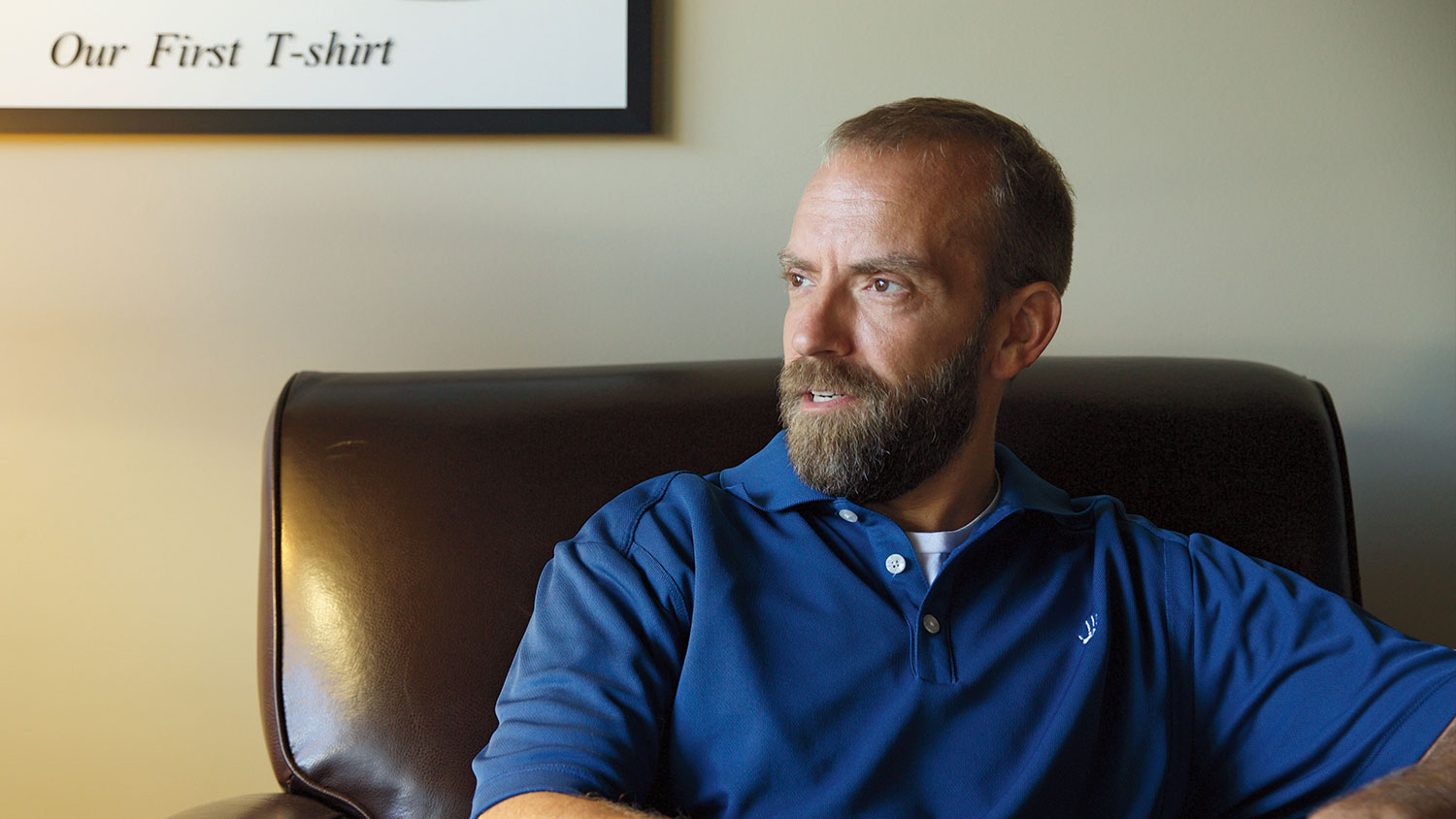By Maureen Collins – adflegal.org – August 19, 2019
When Blaine Adamson considers which projects his shop will take on, he doesn’t look at who the customer is – he looks at the message he is being asked to print.
As the owner of Hands On Originals, a promotional printing business in Lexington, Kentucky, Blaine serves everyone. But he can’t print all messages, no matter who requests them. In fact, during a three-year period Blaine declined to create more than a dozen requests because he objected to the message he was asked to print, including shirts promoting a violent message and pens promoting a sexually explicit video.
In 2012, the Gay and Lesbian Services Organization (GLSO) requested that Blaine print a t-shirt with a message that conflicted with his beliefs. As he always does in these situations, Blaine respectfully declined the order and offered to connect the GLSO to another printer who would print the shirts for the same price.
But the GLSO filed a complaint with the Lexington-Fayette Urban County Human Rights Commission. The Commission then ordered Blaine to attend “diversity training” and print messages that conflict with his religious beliefs.
Blaine serves every person—no matter who they are, including those who identify as LGBT. He simply can’t create messages that go against his deeply held religious beliefs.
That’s something that Kathy Trautvetter understands.
Kathy identifies as a lesbian and runs her own print shop in New Jersey. And even though she agrees with the message the GLSO requested, Kathy emphatically disagrees with forcing people to print a message against their conscience.
“The idea is that when you own your own business, it’s your own art and creation,” she said. “It’s very personal…it takes a long time to build a business. When someone wants to force you to go against it—that’s what struck me right in the heart. I really felt for Blaine.”
While she may disagree with Blaine on many issues, Kathy knows that Blaine has a constitutional right to free speech just like everyone else.
Later this month, Blaine’s case will be heard at the Kentucky Supreme Court. He has already won in court twice, but the government refuses to accept defeat. There is a lot at stake—not just for Blaine, but for anyone who values free speech and religious freedom.
After all, if the government can force Blaine to violate his beliefs, it can easily force you to violate yours. Kathy knows this. As soon as she heard Blaine’s story she asked herself: “If I were in his shoes, what would they be forcing me to do?”
“I have to say,” she said, “if that were me, I wouldn’t like it either.”
To see this article and others from ADF, click read more.
 Listen Online
Listen Online Watch Online
Watch Online Find a Station in Your Area
Find a Station in Your Area









 Listen Now
Listen Now Watch Online
Watch Online
